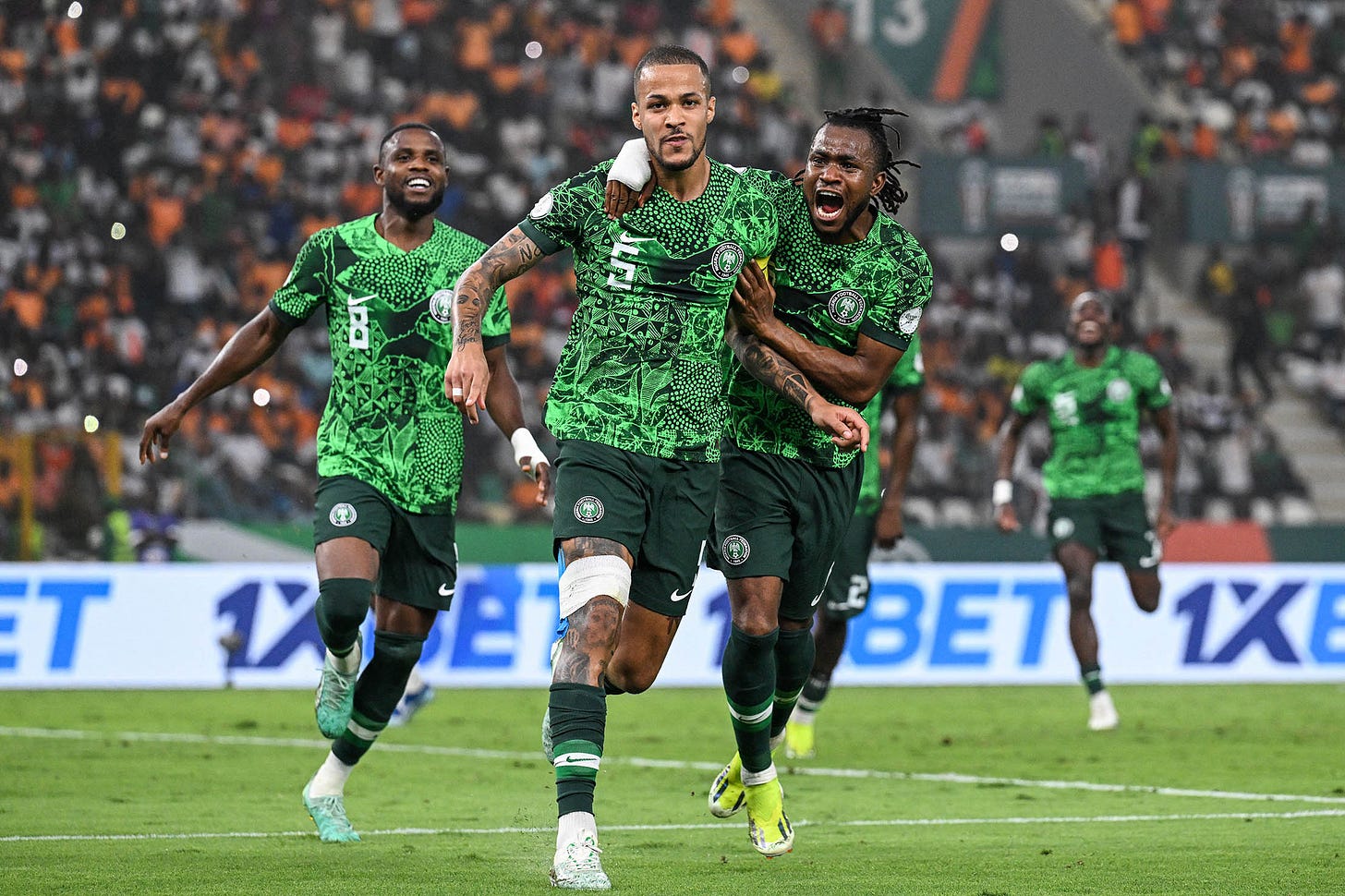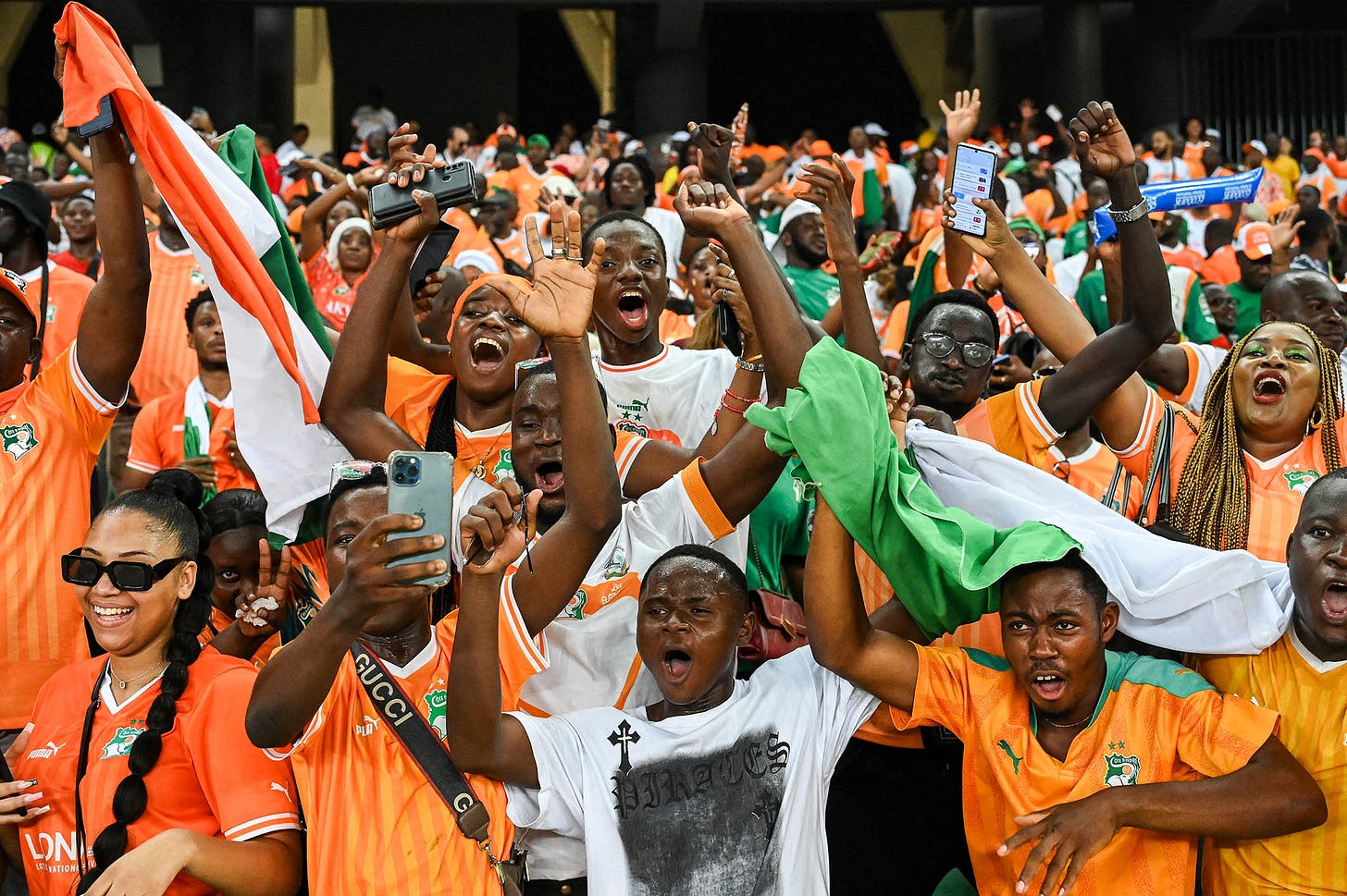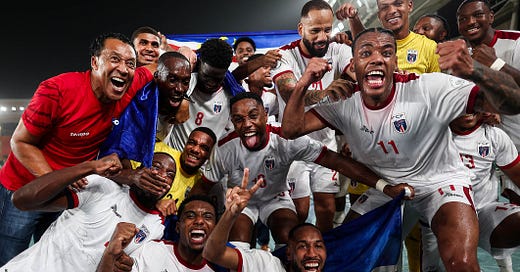An Afcon for the ages
The Africa Cup of Nations has brought drama and unpredictability that will be remembered for years to come
Firdose Moonda
Teams have battled temperatures that have threatened to touch 40°C. The tournament is happening early in the year when European clubs prefer not to let their top players spend a month away. And it’s still one of the most exciting in recent years.
Cape Verde has a population of just over half a million people and qualified for its first Africa Cup of Nations (Afcon) only 11 years ago. This year the team beat fourtime champions Ghana and held strong against seven-time winners Egypt to have a decisive say in knocking both powerhouses out of the tournament.
This was only one of several upsets that shifted the narrative of the continent’s biggest football tournament.
The Lusophone countries headlined the surprises. Cape Verde reached the quarterfinals for the second time in history, Angola reached the knockouts for the first time since 2010 and Mozambique shared points with both Ghana and Egypt, exiting with their heads held high.
While Cape Verde benefits from their players’ experience in Europe – only one of the 24-man squad plays on the islands – Angola and Mozambique are success stories from the Council of Southern African Football Associations (Cosafa).
The regional body hosts tournaments at under-17 and under-20 level, developing talent. Angola has won two of the last five under-17 events while Mozambique was triumphant in the 2020 under-20 event and losing finalists in the 2022 edition.
Timothy Shongwe, chairman of Cosafa’s Competitions Committee, says the hard work the body has done at junior levels “is paying dividends”. Shongwe said in a statement: “Many of the players who are now starring for their senior national teams started in our junior competitions, which was their first exposure to international football.”
Shongwe says the hard work the body has done at junior levels ‘is paying dividends ... Many of the players who are now starring for their senior national teams started in our junior competitions’.
Namibia appears to be sharing in those dividends. Ranked 115th in the world, against all odds, they stunned 28th ranked Tunisia in their opening match. The 1-0 win was Namibia’s first at Afcon and threw Group E wide open. The core of Namibia’s squad, including captain Peter Shalulile and the goalscorer against Tunisia, Deon Hotto, are based in South Africa’s Premier Soccer League. But a lot of the talent grew out of regional junior levels. The country won the 2016 under-17 Cosafa Cup and reached the final of the 2020 under-20 event.
South Africa resurged. In the run-up to the semi-final which Nigeria ultimately won on penalties, Bafana Bafana reentered the public imagination after years in the shadows of their country’s champion rugby team. South Africa put paid to their goal-shy reputation by scoring four against Namibia and two against World Cup semi-finalists Morocco before goalkeeper Ronwen Williams’ heroics became the stuff of legend. His four penalty saves in the shootout against Cape Verde were the most by any player at a FIFA-sanctioned event and embodied the resilience that is South African sport. Williams made a nation believe again and ensured South Africa stayed at the event until the final weekend.

Alas, they won’t be competing for the main prize. That is the domain of Nigeria and Côte d’Ivoire, unlikely finalists perhaps, but from the region that continues to dominate the game on the continent: the west.
The more remarkable story of tomorrow’s finalists is that of the hosts, who snuck into the knockouts through the back door as the fourth-best of the teams ranked third and sacked their coach on the same day that they qualified.
Jean-Louis Gasset was shown the door after he oversaw a disastrous run through the group stage in which the Ivorians suffered their heaviest defeat at an Afcon tournament, losing 4-0 to Equatorial Guinea. He called the game a “nightmare match”, which left the team in a “catastrophic scenario”. Former national midfielder Emerse Faé took the team through the rest of the tournament.
Faé’s first match in charge was against the current cup holders, Senegal, and they appeared much-improved as they drew 1-1 in extra time before emerging victorious in a 5-4 penalty shootout.
Then, they were down to 10 men in the quarterfinal against Mali but a stoppage goal from Oumar Diakité put them in the last four where their coup de grâce came from Sébastien Haller, whose lone strike against the Democratic Republic of the Congo means the hosts will compete in the final.

For Côte d’Ivoire, the target is clear: become continental champions. They enter the final knowing that no home team has won Afcon since Egypt in 2006 and that Nigeria, who have had a disappointing run since winning the trophy in 2013, lie in wait.
Nigeria already beat the Ivorians in the group stage and boast an array of superstars in their ranks including their Dutch-born captain William Troost-Ekong, Atalanta winger Ademola Lookman and Napoli striker Victor Osimhen.
Osimhen, who wears a mask during play – a safety measure required after multiple injuries – has 18 metal screws and six plaques in his face. Yet, he continues to play football with a fearlessness that belies his history. In a way, he embodies what the tournament is all about: bravery.
For Côte d’Ivoire, the target is clear: become continental champions.
The next edition of Afcon will be held in Morocco as part of the country’s drive to show readiness to co-host the 2030 men’s World Cup. The one after that will be held in Tanzania, Uganda and Kenya. Both editions will take place between June and July, coinciding with the European summer break when all the best players are available for their national teams.
The success of those tournaments depends heavily on the hype created by this one. So far, it has brought drama and unpredictability that will be remembered for years to come.




